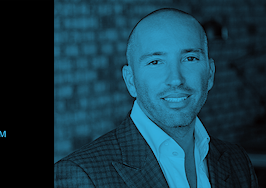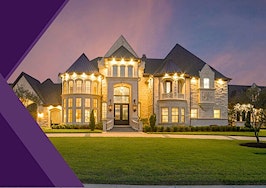How do you thrive in today’s luxury market? Don’t miss Inman’s Luxury Connect, October 15-17, 2019, in Beverly Hills, California. Walk away with the marketing, technology and luxury intelligence to grow your business while expanding your referral network with built-in networking sessions. Join 600 of the most notable names in luxury real estate. Reserve your spot here.
The wealthy have never had it so good in America: low taxes, a growing economy, cheap debt and fewer regulations.
But the affluent are also targeted by a wave of liberal populists fanning scandals which expose the arrogance of the rich. The Jeffrey Epstein mess, tech-bro shenanigans, wealthy #MeToo targets and college admissions cheaters have been top of the news all year. The protective dome that the wealthy have operated under for generations is under attack.
Capitalism is being put to the test
Earlier this week, the otherwise conservative UK-based Financial Times issued a call to action for its readers with a campaign titled “Capitalism. Time for a Reset.” The narrative pushes the increasingly accepted idea that privilege demands a larger social responsibility.
“Business must make a profit but should serve a purpose too,” it reads.
It is with this backdrop that the luxury housing market is becoming more challenging.
For one, many luxury buyers are forgoing taking the plunge in some high-end markets like New York and Los Angeles. Uncertainty and hesitation are driving their reluctance as larger political, economic and cultural issues play themselves out. Think keeping one’s head down as opposed to flaunting one’s accomplishments by purchasing a massive new home.
Homes remain an important symbol of success
But many buyers are rethinking how and where to express their housing aspirations.
Misgauging these changing desires can, and has, set the luxury industry back.
Branded as Billionaires’ Row, Manhattan’s 57th Street high-end building spree is an example of one area suffering from the luxury slowdown and shifting behavior as buyers reexamine what is important with their housing desires.
Many parts of the U.S. luxury scene still revel in gilded age-like spirit. But the idea of bigger, bolder and flashier homes is not playing well in many markets where monster houses are sitting idle longer and in some cases being torn down to accommodate more modest digs.
Changing tastes reshape the luxury landscape
The young monied tech crowd generally shun sprawling estates and villas. And without the traditional extended family hovering around, many wealthy boomers are downsizing, rejecting the “living large” ethos. Embracing a more humbled wealth — what you do with your money is more important than what you own with it.
With buyers hesitating in some markets, sellers who expect extravagant returns are figuring out they must bring down their expectations — and their prices.
Design is also undergoing a change with barnyard styles trumping gates and fountains. And pales and grays are more popular than opulent reds and gold. Postmodern is having a comeback as people have begun to reject ceiling-to-floor glass windows and open plans.
The shrinking number of foreign buyers
Wealthy Russians, Chinese and Middle Eastern shoppers are not as active in the U.S. real estate market this year. The overseas spigot is not running as freely.
The rich are savvy and make choices based on advice from their peers and advisors and by public policy shifts like changes in federal tax laws. Florida is the winner when it comes to tax changes, while New York and California are losing out. No income tax areas like Lake Tahoe, Nevada are seeing a rebirth while markets like Miami, Palm Beach, Key Biscayne and Naples are booming.
Further complicating the tax picture is the New York estate tax and the rumblings that a California estate tax is coming soon.
Successful luxury agents must constantly revise their strategy to these changing conditions and figure out exactly what their customers want.
How does one move wary buyers off the fence and communicate new market realities to sellers? How best to take advantage of the changing tax situation, or manage to it for those living in high-tax states?
Aspiration drives luxury housing demand
But what will those aspirations look like in the future? How are they being reshaped? What are the wealthy reading, watching and scrolling that’s influencing their tastes and attitudes about their success and what they want to do with it?
Good luxury agents must be on top of these shifts and trends to help their clients find opportunities that fit with the times.
To that end, I personally invite you and your colleagues to join us at the Beverly Wilshire Hotel in Beverly Hills, CA, on October 15-17 for this year’s Inman Luxury Connect. We’ll pour over these issues, and more, with many of the smartest minds in luxury real estate. There’s never been a more important time to level yourself up and learn from the best. Please join us.
Reserve your spot at Luxury Connect here. Thinking of bringing your team? There are special onsite perks and discounts for team who register together. Just contact us to find out more.













